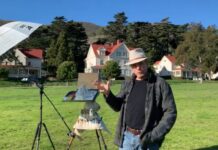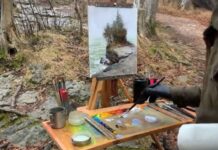On painting atmosphere > “More than anything, I enjoy the sense of connectedness that painting on location brings,” says Kathleen Hudson. “My own sense of wonder in the landscape comes from my immersion in reading history. A place isn’t just scenery when you come to know its story, when you think of people from generations past who stood upon the same ground, taking in their surroundings just as you are.”
Creating Atmosphere: An 8-Step Landscape Painting Tutorial with Kathleen Hudson
Written by John A. Parks
Step 1
Painting on location in Tequesta, Florida, Kathleen Hudson applies a rough wash composed of ultramarine blue and transparent red oxide. Note that the paint is not fully mixed so the color remains active.
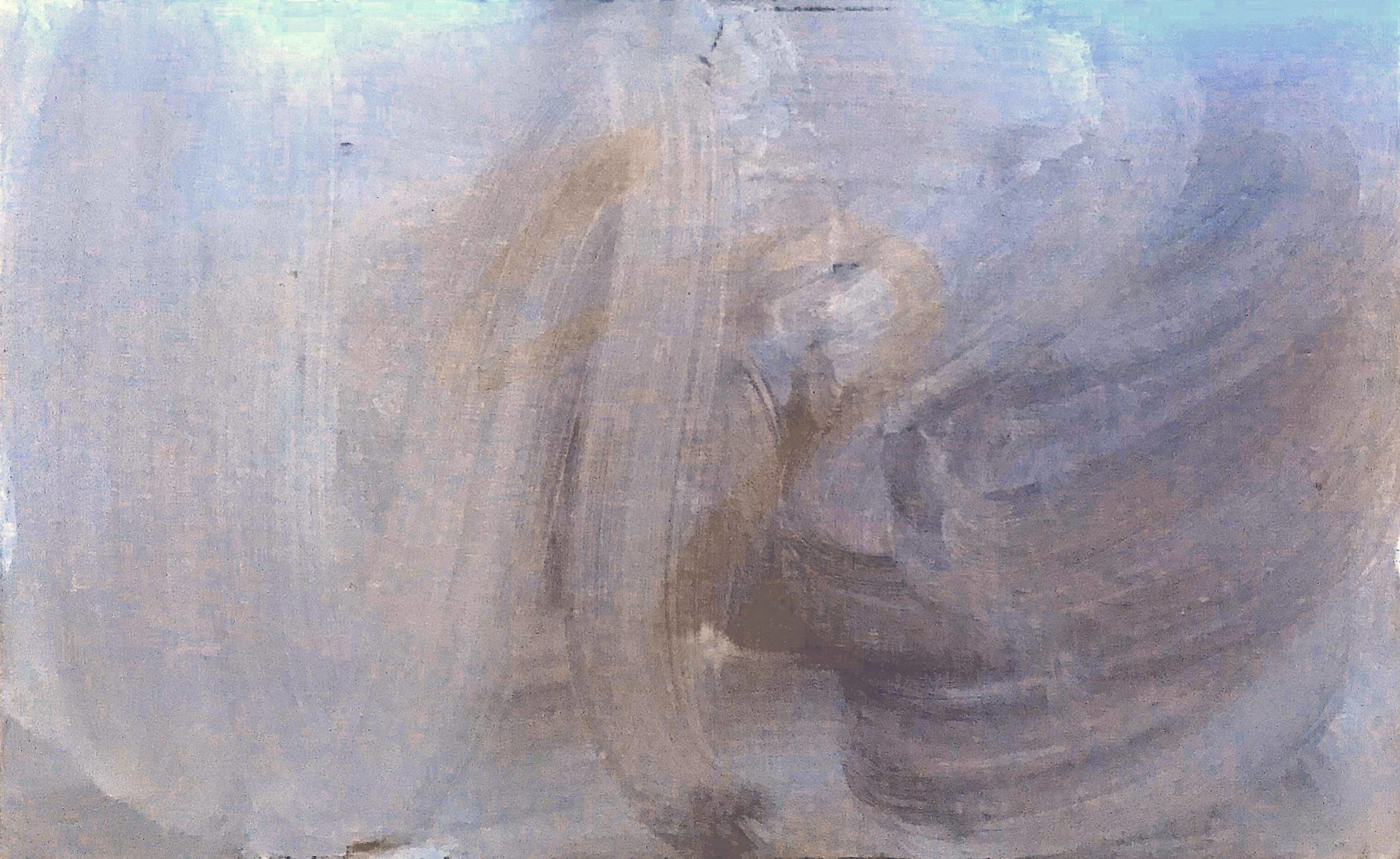
***
Step 2
The artist has applied a rough grid, dividing the canvas into thirds. This allows her to stabilize the composition. She has begun the drawing with some dark, thick lines in varying weights of red oxide and ultramarine. Note that the outcropping rock in the middle distance has been placed right on a corner of the grid. This will become the focal point of the painting.
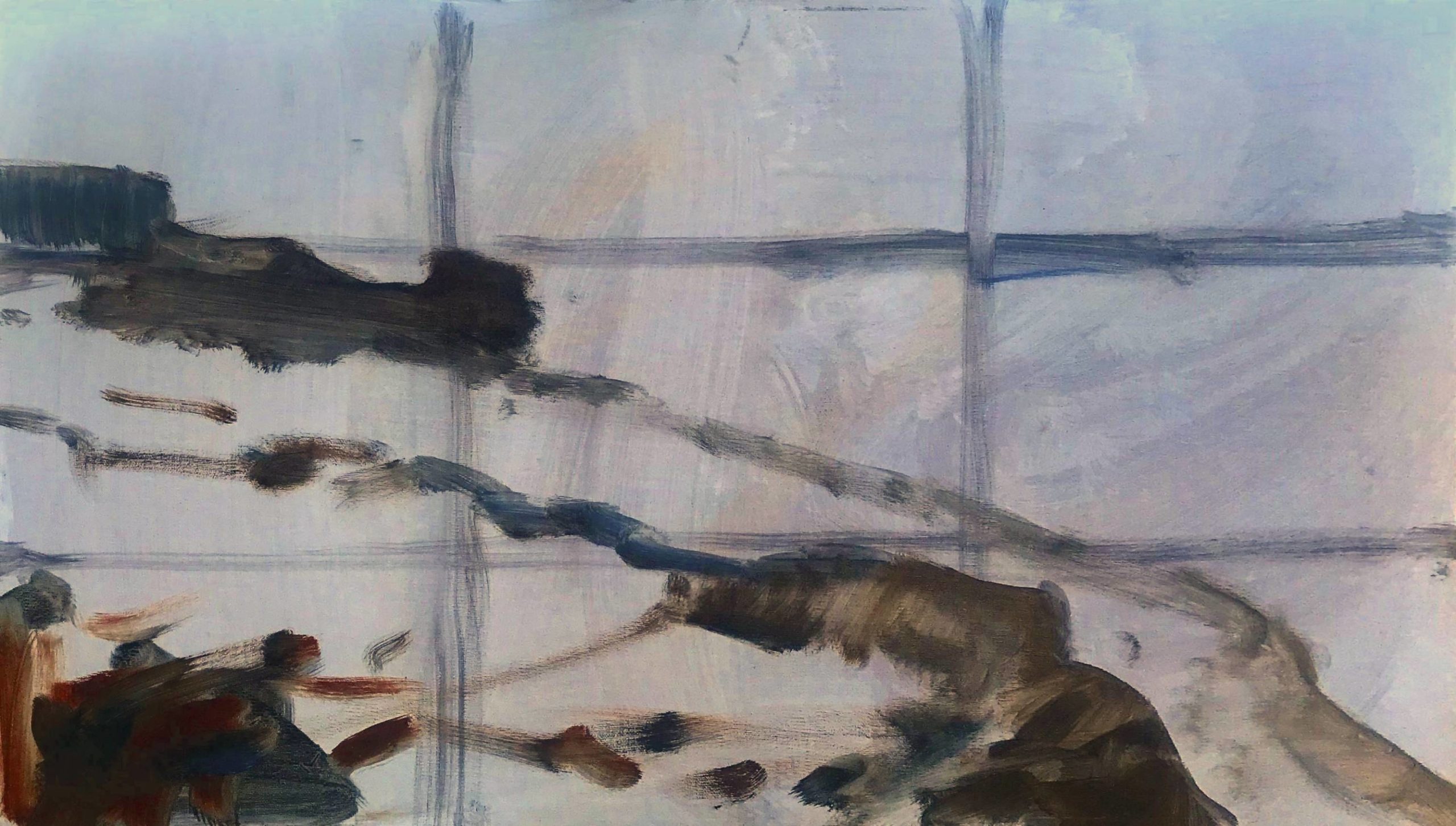
***
Step 3
The main masses and shapes have been blocked in, in full color. While the painting is bold, it is still fairly thin, allowing the artist to work on top.
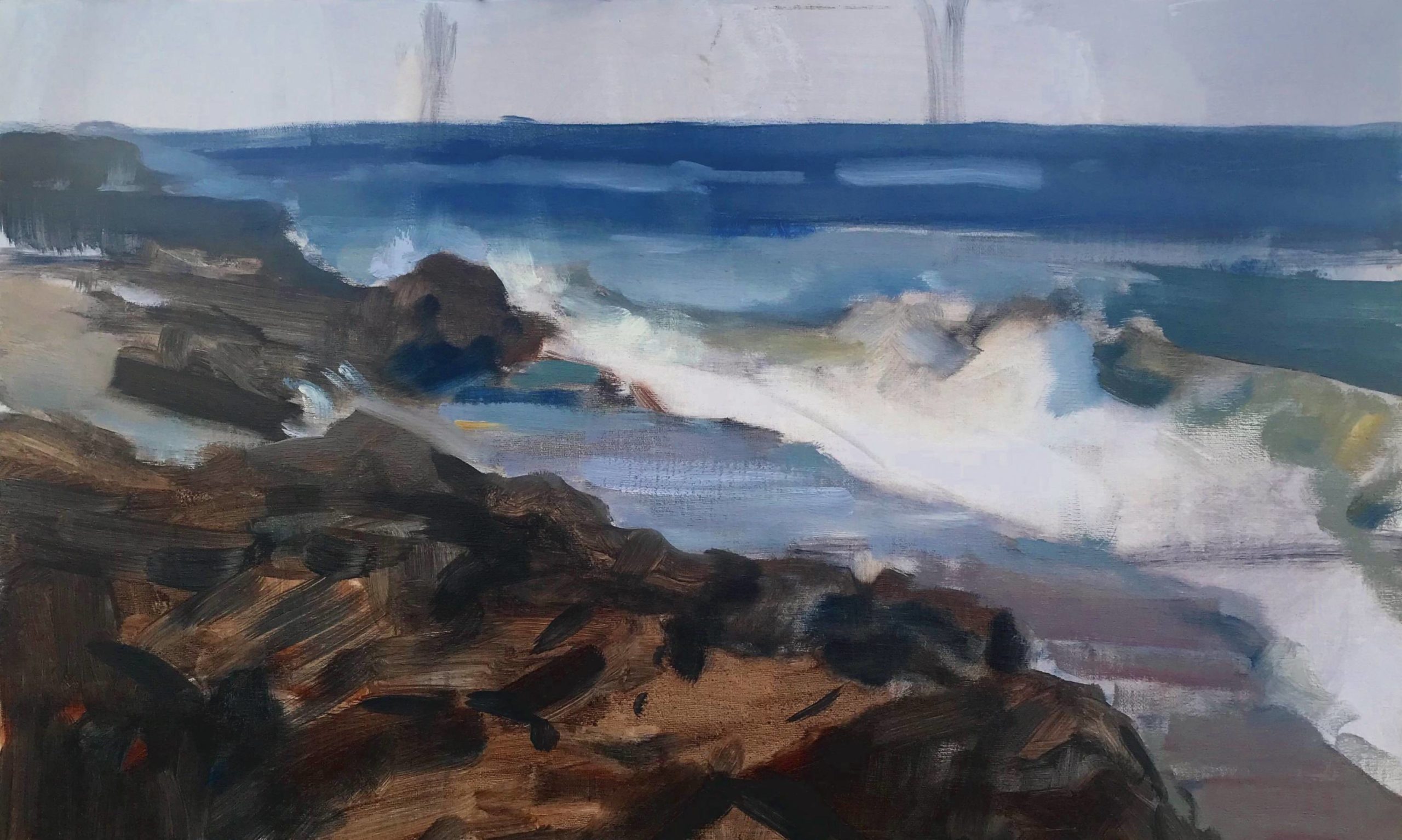
***
Step 4
Hudson begins to brush in variants of the color in the major areas, particularly the sky, to create a sense of the nuance and richness of the scene. By working up the sky first, she sets up the light for her work on the sea and the land that will reflect it.
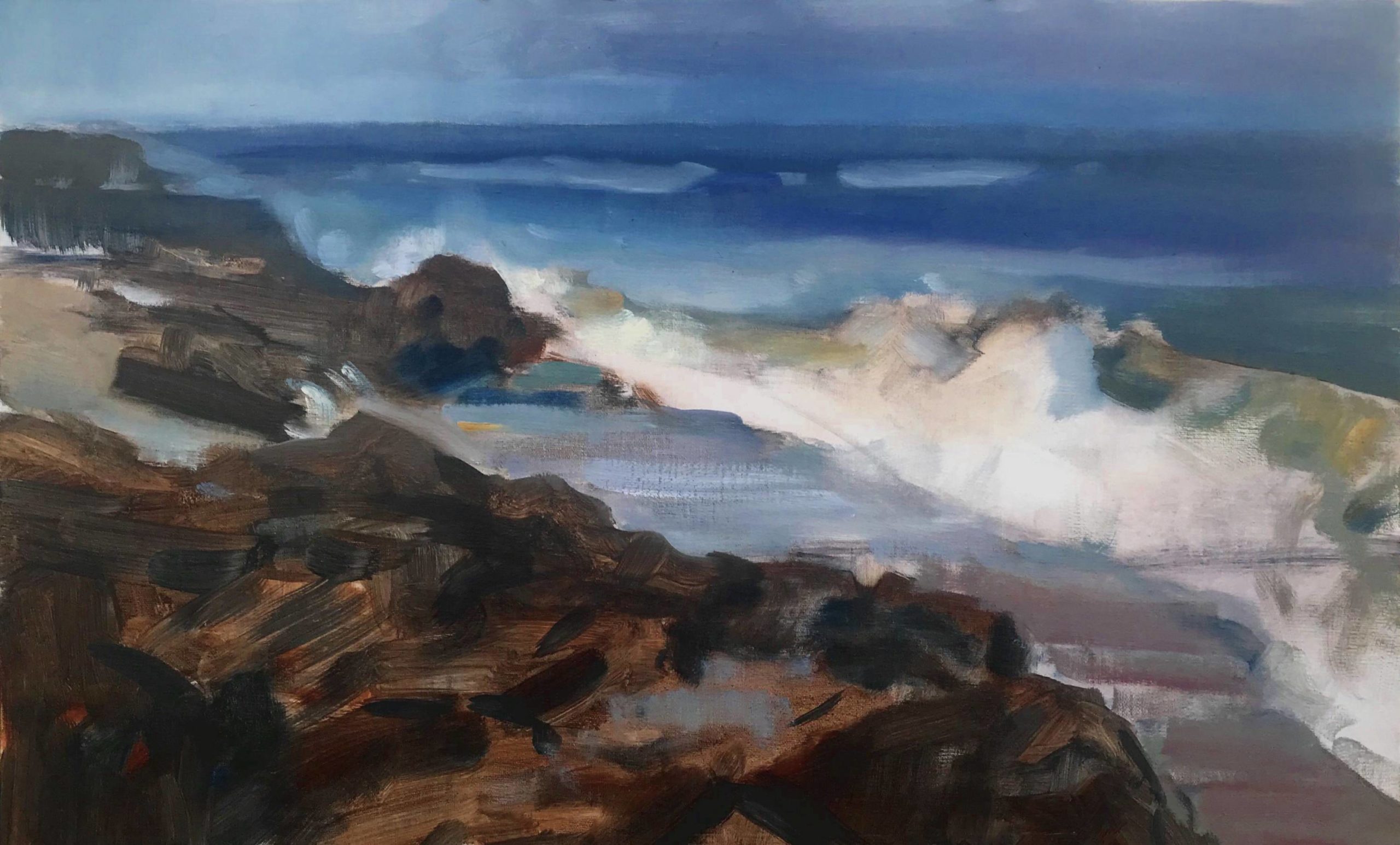
***
Step 5
The artist continues to add information, building the sea and sky, and bulking up the cascading wave.
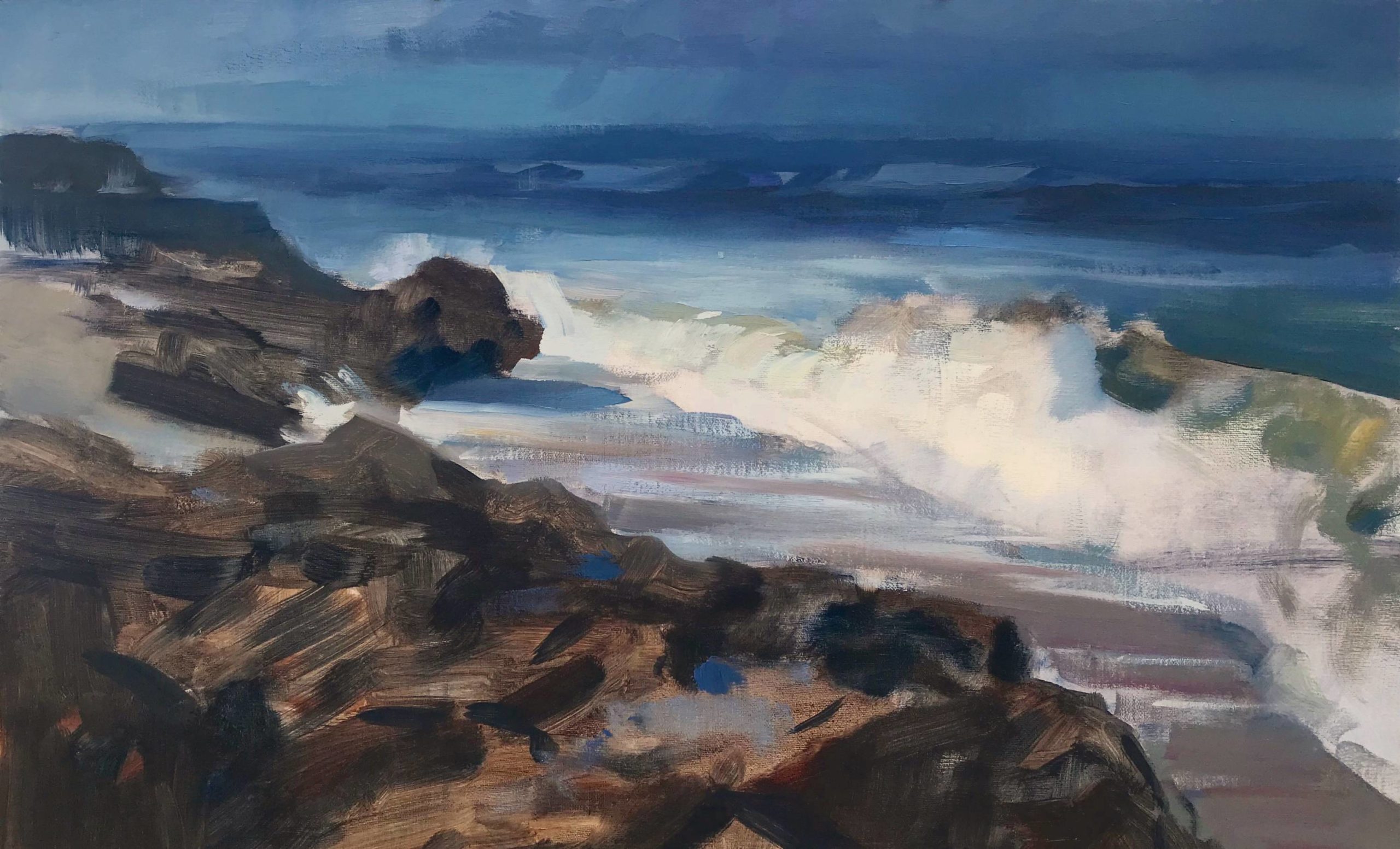
***
Step 6
More detail is added to the wave and water.
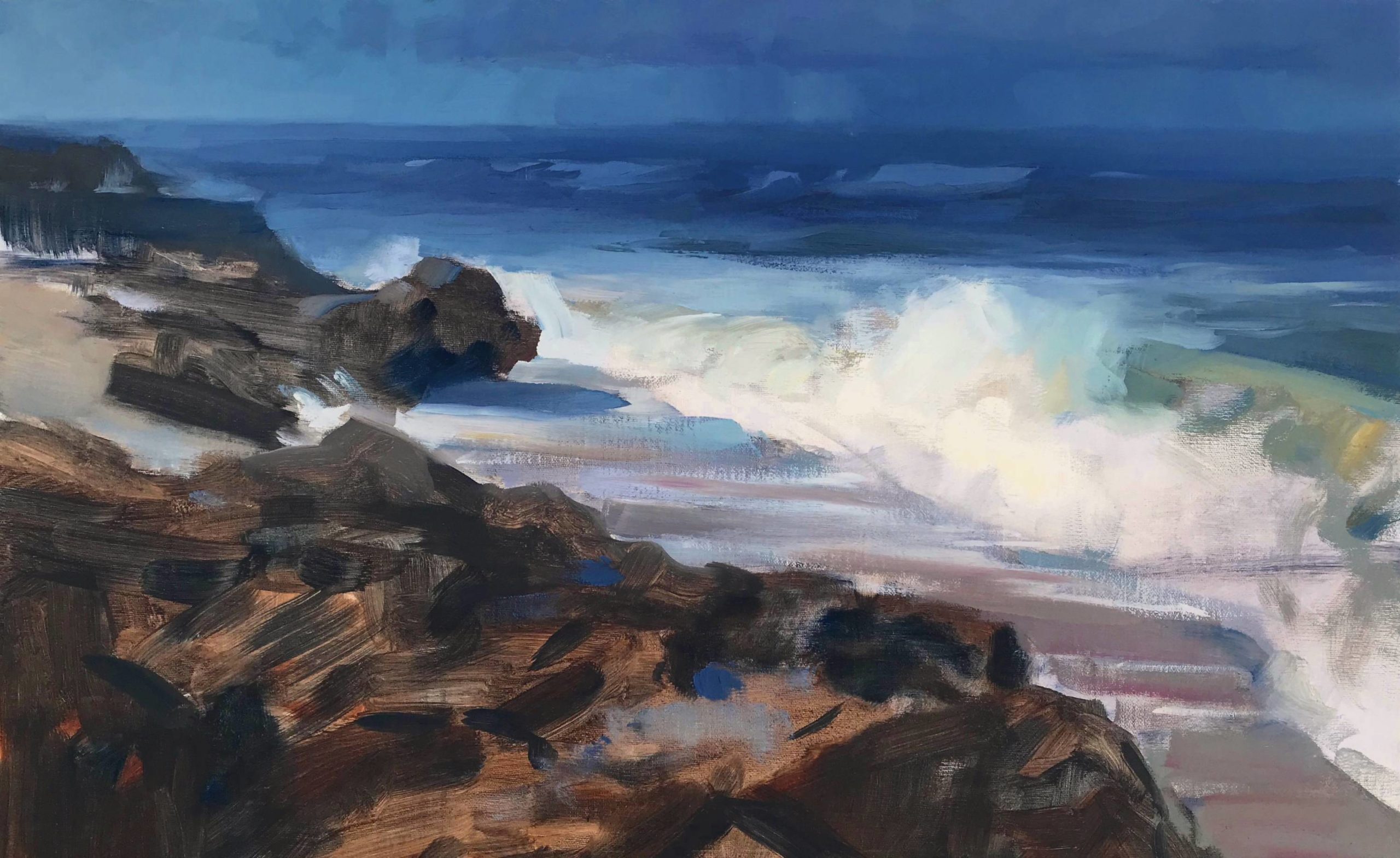
***
Step 7
The artist now builds up the foreground. Even though the color in the darks
is close, she keeps it active by allowing the paints in the mixture to remain separate. The brushwork remains direct and vigorous.
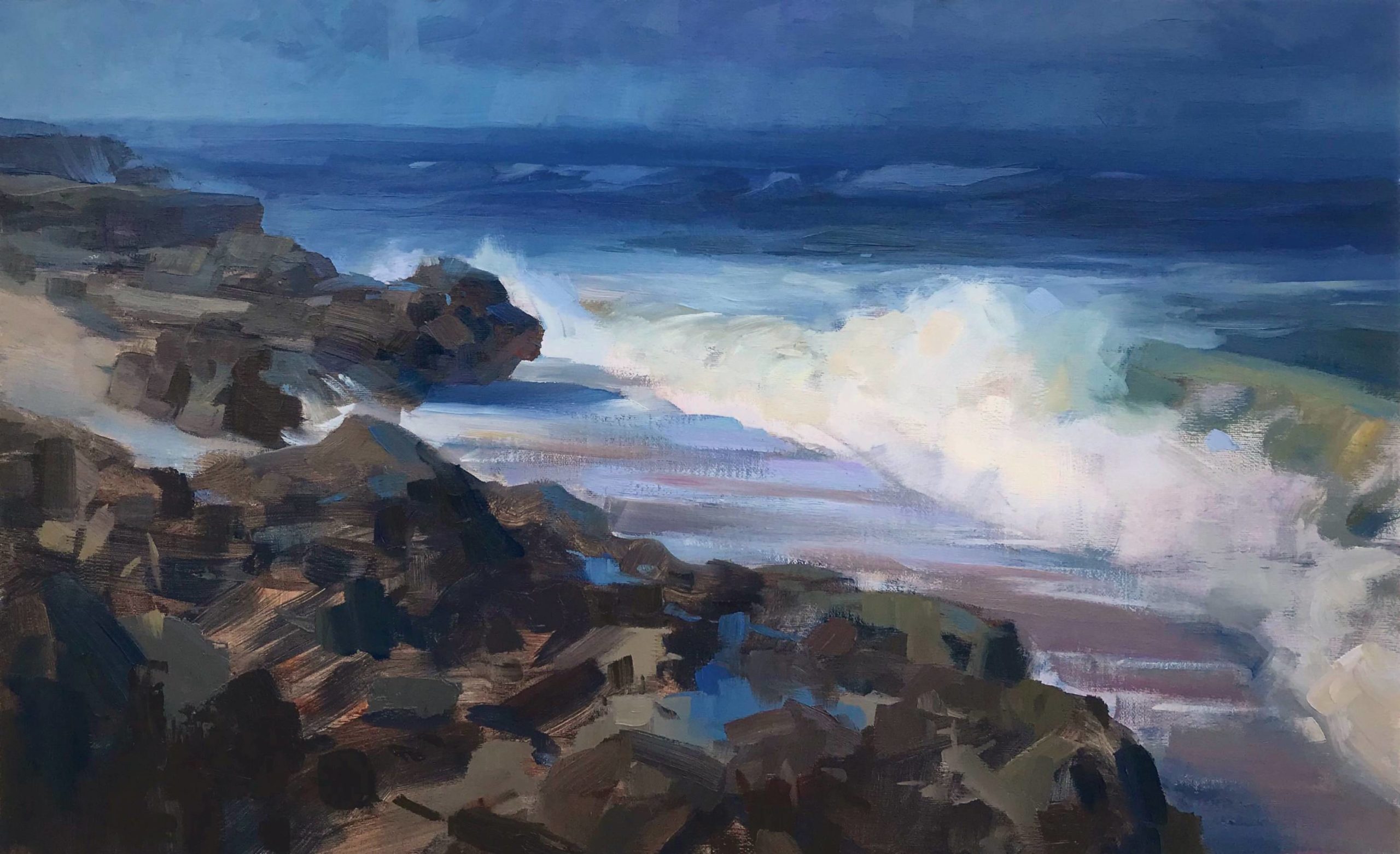
***
Final Step
In the final scene, the color has been enriched by more turquoises and yellows in the sea. The rocks have also received more work, and the color now includes more raw sienna. Note how the blues dragged on top of the rocks work as reflections of the sky. Various edges have been softened. The focus remains on the outcropping rock in the middle ground where the edges are held fairly hard, drawing the eye to the central drama.
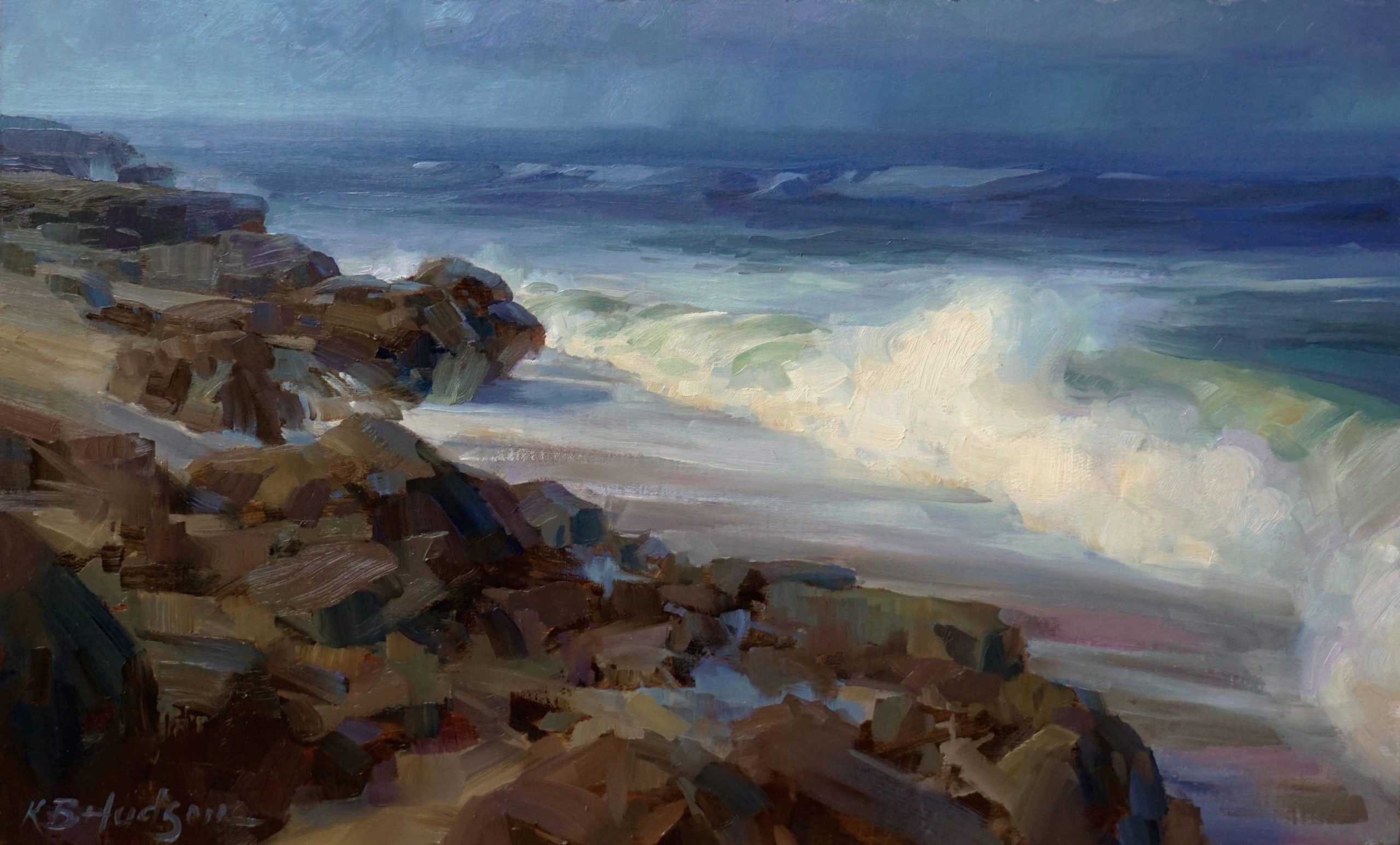
Connect with the artist: kathleenbhudson.com
Related > Learn how to paint landscapes with Kathleen’s videos, “Creating Dramatic Atmosphere in Landscape” and “Clouds & Distance.”
Visit EricRhoads.com to find out all the amazing opportunities for artists through Streamline Publishing, including:
– Online art conferences such as Plein Air Live
– New video workshops for artists
– Incredible art retreats
– Educational and fun art conventions, and much more.
> Subscribe to Plein Air Today, a free newsletter for artists
> Subscribe to PleinAir Magazine so you never miss an issue



